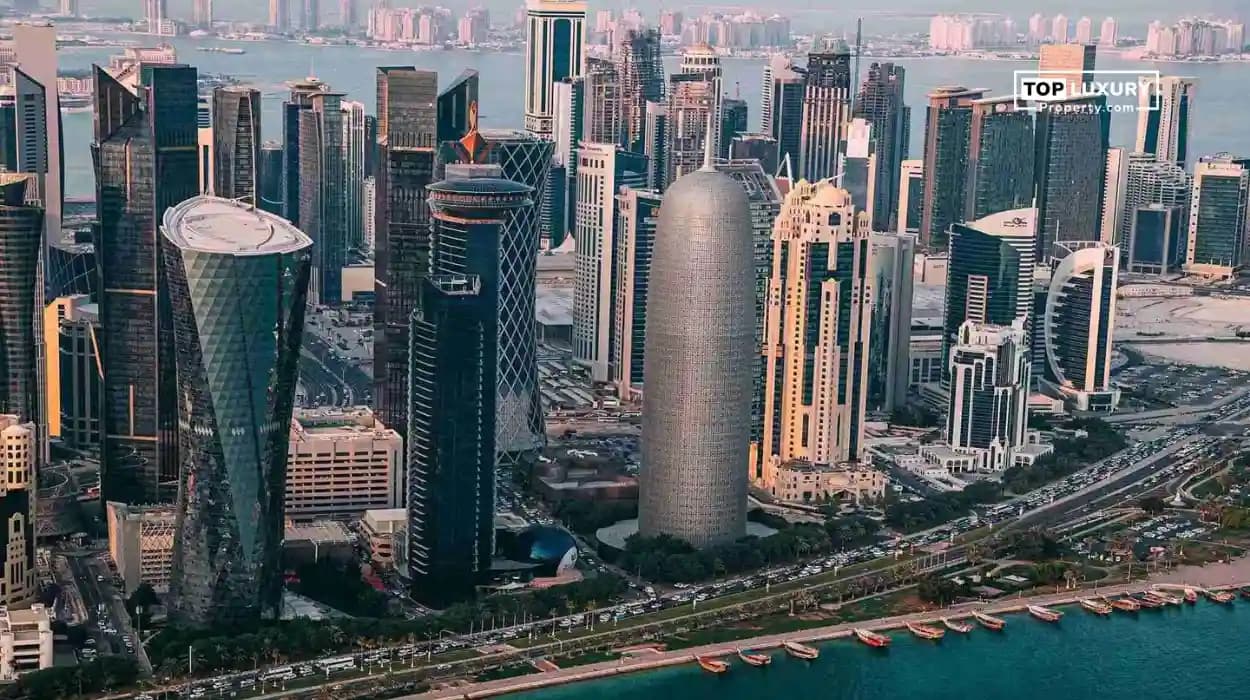Qatar has launched a streamlined property investment residency scheme allowing
foreigners to obtain temporary residency through a minimum US$200,000 property
investment and permanent residency with an investment of US$1 million, granting
a range of benefits including family inclusion and access to healthcare and
education.
Qatar's New Residency by Property Investment Scheme
Qatar's groundbreaking residency programme enables foreign investors to gain residency permits by investing in real estate within designated freehold areas. This initiative, guided by Law No. 16 of 2018 and Cabinet Resolution No. 28, aims to attract international capital and diversify Qatar’s economy. Notably, buyers investing a minimum of US$200,000 can qualify for a renewable temporary residency permit, while those investing at least US$1 million become eligible for permanent residency.His Excellency Eng. Khalid bin Ahmed Al Obaidli, Chairman of Qatar's Real Estate Regulatory Authority (RERA), revealed the scheme at the Third Real Estate Forum. As reported by Times of India journalist, Al Obaidli stated,
“All concerned entities are working together as one team to make property ownership in Qatar easier and more efficient.”
He emphasised that all
projects licensed by RERA in 2025 are free of issues, ensuring buyers receive
title deeds and residency visas promptly following property purchases.
Investment Tiers and Residency Benefits
The residency path is divided into two key investment tiers:- Temporary
Residency: For property investments of a minimum QAR 730,000
(~US$200,000). This permits a renewable residency visa with family
sponsorship privileges, including spouses and children, coupled with
residence and work rights alongside access to healthcare and education.
The minimum annual stay requirement is 90 days. Properties must be in
government-designated freehold areas, such as The Pearl-Qatar, West Bay,
and Lusail City.
- Permanent
Residency: Requires a minimum investment of QAR 3,650,000 (~US$1
million), which grants permanent residency status with extended benefits.
These benefits include healthcare access, education opportunities for
children, business establishment rights, and the ability to include
extended family members. Applicants for permanent residency must
demonstrate Arabic language proficiency as part of the vetting process. An
annual quota of approximately 100 permits applies to this category,
potentially causing wait times.
Residence Permit Issuance Process and Key Requirements
The application procedure begins with the selection and purchase of compliant property within designated areas, followed by documentation submission to the Ministry of Justice’s Office for Non-Qatari Real Estate Ownership. Applicants must present proof of funds, police clearance certificates, medical certificates, passport copies, and property deeds, with all foreign documents attested by a Qatari embassy. The processing time ranges from two to six weeks, subject to extension if further verification is necessary.Upon approval, applicants receive a Qatar residency permit
and an ID card. The residency permits are renewable annually for temporary
residency and every five years for permanent residency holders. Investors must
maintain their property investment throughout the residency period to retain
their status. Selling the property is permitted, but residency eligibility
depends on maintaining the minimum investment threshold.
Strategic Locations for Investment
Qatari authorities have designated specific geographic areas for these residency-linked investments, recognised for their strategic value and robust infrastructure. These include:- The
Pearl-Qatar: Known for luxury waterfront properties with premium
amenities and high rental yields.
- West
Bay: Qatar’s prestigious business district, comprising Al Dafna, Al
Qassar, and West Bay Lagoon, noted for connectivity and commercial
vitality.
- Lusail
City: A modern, planned smart city emphasising sustainable
development, designed to attract future-oriented investors.
Economic Impact and Market Context
The introduction of this residency-by-investment scheme corresponds with a significant uptick in Qatar’s real estate market activity. The second quarter of 2025 saw transactions reaching QAR 8.9 billion, a rise of nearly 30 percent year-on-year, largely driven by a doubling of residential property sales. RERA notes that Qatar leads globally in real estate registration efficiency, with ownership documentation and architectural plans issued within 24 hours and minimal registration fees capped at 0.01 percent of construction costs.Additional Legal and Practical Considerations
Applicants must meet legal requirements including being at least 21 years of age, possessing a valid passport, being in good health, and having a clean criminal record. Residency rights allow for business establishment in Qatar, including the capacity to own 100 percent of businesses in many sectors without requiring a local sponsor, enabling ease of economic participation.Furthermore, Qatar offers an attractive tax environment for investors, with zero personal income tax, no capital gains tax on property transactions, and no inheritance tax. Rental income generated from invested properties is also tax-exempt, enhancing financial benefits for foreign residents and investors.
Qatar’s newly introduced property investment residency scheme is designed to
simplify property ownership processes, provide fast-track residency visas, and
attract foreign investment strategically aligned with national economic
diversification goals. By offering an accessible pathway starting at
US$200,000, Qatar opens its doors to a wider spectrum of international
investors, fostering economic growth, enhancing the real estate sector’s
dynamism, and increasing expatriate community integration within the country’s
rapidly developing urban centres.
This initiative underscores Qatar’s ambition to position itself as a global investment hub while enhancing quality of life and residency opportunities for international investors and their families in a strategically robust and tax-friendly environment.
